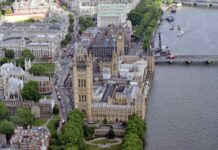Government’s net zero target ‘undeliverable’ unless clean growth policies introduced
Urgent government action is needed to reverse ‘the current policy trend of cut backs and slow progress’ if the UK is to achieve its legally binding target of net zero emissions by 2050.
That’s according to a new report from the cross-party Science and Technology Committee – which highlights ten areas of policy failure which have ‘undermined’ carbon reductions. Shortfalls include the scrapping of the Feed-In Tariff and the upcoming closure of the Renewable Heat Incentive.
The report also sets out ten policy priorities to get the UK ready for net zero by 2050. Recommendations are far-reaching and cover a range of sectors, including transport, heating, energy efficiency and greenhouse gas removal.
Net zero: The top ten policy actions
- Developing a clear strategy for decarbonising heat: The report says this will require large-scale trials of different heating technologies, such as heat pumps and hydrogen gas heating, operating in homes and cities
- Incentive scheme for energy efficiency home improvements: The report suggests adjusting Stamp Duty so that it varies according to the energy performance of the home as well as the price paid for it. It suggests that homebuyers can then claim back reductions on Stamp Duty if they make energy efficiency improvements. It also wants to introduce funding to help homeowners make energy efficiency improvements.
- Plan for reducing vehicle emissions: The report recommends various policies, including to bring forward the ban of conventional car sales to 2035, fiscal incentives for consumers to buy low emissions vehicles, and working with public services to accelerate the deployment of EV chargepoints.
- Support for onshore wind and solar power: The Committee wants strong policy support for new onshore wind power and large-scale solar power projects. It also wants to ensure that national planning policy facilitates the re-powering of existing sites.
- Review of the Smart Export Guarantee: The report suggests a review of the Smart Export Guarantee―the planned successor to the feed-in tariff scheme―by the end of 2020, and says it should be ready to include a minimum price floor if there is evidence of a lack of market competitivity.
- Sustain nuclear power without growing the industry: The government ‘must make a decision on the future finance framework for new nuclear power by the end of 2019’. It says the government should seek to support new nuclear power generation so as to sustain, but not grow, the UK’s nuclear power industry.
- Removal of greenhouse gases: The report proposes a consultation to inform the development of a future framework for managing and incentivising greenhouse gas removal on the scale required for net zero emissions, and to provide greater certainty to encourage private investment in the development of these technologies.
- Clear action on carbon capture, usage and storage: The Committee wants greater clarity on the details of its carbon capture, usage and storage action plan – to optimise the chance of successful deployment.
- Clean growth regulation of the energy market: The report says the government should consider amending Ofgem’s principal objective so that it explicitly includes ensuring that regulations align with the emissions reduction targets set out in the Climate Change Act 2008.
- Support for local authorities: Recommendations include support for local authorities and members of the public to reduce emissions. For local authorities, this includes access to low-cost, long-term finance as well as a statutory duty to develop emission reduction plans.
Rt Hon Norman Lamb MP, Chair of the Science and Technology Committee, said:
“Throughout our inquiry, it was worrying to hear that although the government may be ambitious when it comes to reducing carbon emissions, it is not putting the policies in place which are needed to achieve those targets. The government’s own projections suggest that the UK is not currently on track to meet its current emission targets, let alone net zero by 2050.
If governments across the world fail to act, it will have dire consequences for the environment and generations to come.”













